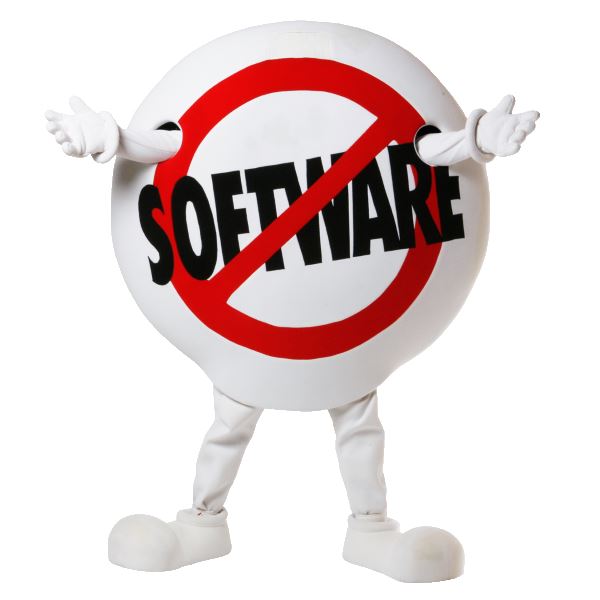# Why Salesforce?
So, you are interested in Salesforce huh? Well, there are good reasons to do that and this section deals with those questions and also details out what you can expect in a Salesforce career.
# A bit of history
Salesforce started in the last century and had revolutionary idea for the time. That was simply - "no software".

When the market was dominated by 'on premise' SAP's and Oracle's of the world, Salesforce was seen as a niche player pushing enterprises towards cloud.
- Do stuff using just a browser
- Configure application to suit your business needs
- Don't worry about infrastructure
- Don't worry about long-term commitments
It took people quite a long time to get comfortable with the idea. It did not help that initial web apps were really bad. It was not quite suited for 'enterprisey' work - especially in medium to large segments.
As software-pushers of the enterprise, we almost never recommended Salesforce.com back in the day. This was true until 2010s when overnight almost everyone and their dog started recommending Salesforce as the only viable solution. (and yes, both are extremes)
# Fast Forward to Today (and tomorrow?)
Salesforce.com has an well-established, trusted application ecosystem that is used by thousands of large and small businesses across the world.
The technology that makes up Salesforce and its improvement is wild - from the "modern" Lightning UI framework to Einstein AI / IoT Cloud to Project Evergreen. Of course, you learn to take the "stuff" with a pinch of salt, but the changes/improvements go a long way in continuing to project Salesforce.com as a leader in what they do.
Also, the era of no-code / low-code software applications have made all the right noises in 2019 and it is "generally believed" to be the way forward for IT. Who better to lead the world in that future than Salesforce?
To say that Salesforce.com has a strong ecosystem that can solve many technology problems is somewhat of an accepted fact today -
- Salesforce supports all facets of a "traditional" Customer Relationship Management (CRM) application - sales, service & marketing
- It has been delving more and more into the space of traditional "back-end" systems like ERPs
- Salesforce Helps create apps quickly for today's enterprise. In a matter of weeks you can deploy core-business apps, add-on/ancillary apps or anything else
- Far simpler to roll-out systems that are used by internal users and/or external stakeholders including partners and customers
- Deeper vertical support for select industries
- A robust app ecosystem in Salesforce AppExchange that provides a plug-and-play experience to drop-in capabilities ranging from complex vertical functions (see Veeva CRM) through "more simple things" like automating mail-merge to bulk generate documents like proposals
And.. all this is done on a system that is easier to maintain -
- Access application over web or traditional mobile app - maintained and updated by Salesforce
- Rapidly improving configuration capabilities that make it simpler to develop & deploy changes, and reduce risk of high technical debt
- Improvements in overall application capabilities for both "horizontal" and "vertical" functions - year on year
- Did we mention the strong AppExchange?
Add all those positives to -
- There are very few competitors who can do what Salesforce can
- It is much, much harder to mess up the software system - even in complex customisations
- Availability of ever-increasing body of knowledge and developers
.. and you have an all-round winner for an organization.
# Ok. But, why should I learn Salesforce?
- More and more of enterprise systems will move to cloud. More and more of systems will move to low/no code systems like Salesforce. Both of these facts translate into Salesforce jobs
- Organizations look at more and more of using a niche-product to address their niche-needs. This translates into opportunities to create small businesses around products and services, and even more jobs
- Constant improvements in Salesforce will translate into newer skills to learn and an opportunity to see it realise business benefits in shorter duration
Want to see these points in numbers - see the presentation below.
# Why not to learn salesforce?
Things are all good until they aren't. Keep in mind a few points while you embark on this journey.
- Salesforce is not a coding platform. If you cannot live without your daily dose of coding in C / Assembly, or you get irked about "lack of independence" to write that shiny new thing - you may want to evaluate the platform thoroughly before rushing in
- Let's repeat this - coding is not the focus in Salesforce. As a good developer you prioritize configuration options and deploy a good mix of configuration + customisation using code. Configuring using clicks is easy, simpler to deploy /maintain and keeps improving to cover new ground
- At the end of the day, Salesforce is an ecosystem - it has its walled garden and all that. While that is expected to change in the future with the independence to write code in your favourite language (think Heroku but with better all-in-one package), today Salesforce customisation is primarily on Apex + Lightning
- We see future major competition to Salesforce more in low-code/no-code platforms coupled with code generators rather than in traditional applications. Use of generators introduce a bit of instability but is (typically) light-weight and better performing - at potentially lower cost